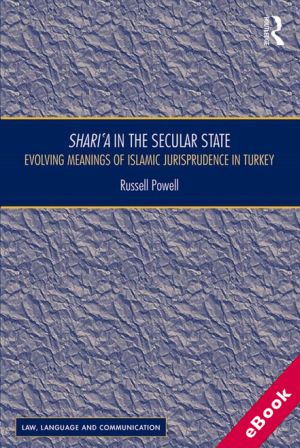
The device(s) you use to access the eBook content must be authorized with an Adobe ID before you download the product otherwise it will fail to register correctly.
For further information see https://www.wildy.com/ebook-formats
Once the order is confirmed an automated e-mail will be sent to you to allow you to download the eBook.
All eBooks are supplied firm sale and cannot be returned. If you believe there is a fault with your eBook then contact us on ebooks@wildy.com and we will help in resolving the issue. This does not affect your statutory rights.
Words in both law and religion can shape power relationships and are often highly disputed. Shari'a lies within the overlap of these two spheres and provides a unique subject for the study of meaning in that liminal space. This book contributes important insights related to Islamic jurisprudence and secularism in the Turkish context and regarding the role of language in disputed legal and religious contexts.
The study begins by providing a historical context for the ideas and terms covered, including concepts of religion in general, Shari'a in particular, and secularism in the Turkish state. It goes on to examine empirical research to describe and analyze contemporary Turkish understandings of religion and Shari'a. The author argues that Turks seldom consider what implementing Shari'a might mean in terms of its effect on civil law, hence there is often a disconnect between supporting an adoption of Shari'a and supporting the regulation of everyday behavior through civil codes. It is a quintessential example of fractured and contextual meaning at the center of both religious and legal tradition.
This book is essential reading for both academics and those interested in law, linguistics, history, political science, anthropology, sociology, religious studies, and Near Eastern studies.